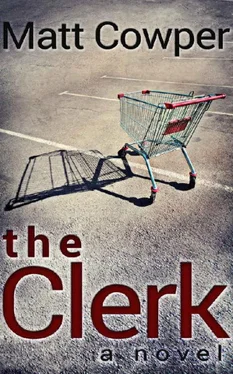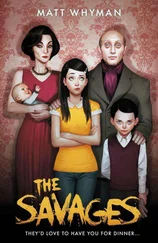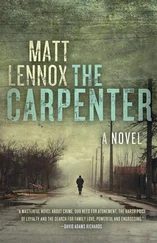“Yes, we had a little reminiscing drive,” Jean said happily. “We haven’t driven by our old bungalow yet or by the old Copeland home, but we drove by the furniture store. Frank didn’t want to go inside, though.”
“It’s no longer my store,” Frank stated, “so I don’t see the need to walk inside and stare at it. And the owner wouldn’t want me coming in and sniffing around and finding fault in how he does things. It’s his store, he can do what he wants.”
Though Frank Copeland did think the lettering of “POTTER FURNITURE & INTERIORS” on the store windows looked terrible.
No, he would never admit it openly, but he had wanted to see the store, if only to ponder what could have been. He wished it was “COPELAND FURNITURE” still on those windows and on the sign by the road, instead of that ugly “POTTER FURNITURE & INTERIORS.” He wished his children (one of them, at least, but preferably both) were running the store, with him acting as a sort of consultant and sage, but they had both rejected that path long ago.
After Thomas started working at Oxendine’s Grocery, he exhibited less interest in the store than ever, which Frank would have hardly thought possible. Thomas either didn’t understand or didn’t care that he had a ready-made business waiting for him to inherit. It was a good way to earn a living: everyone needed furniture at some point, especially these rich folks who kept pouring in to build or buy waterfront homes. All you had to do was knock a few hundred dollars off a bedroom set and people thought they’d gotten the deal of the century. Yes, Frank Copeland’s employees were lazy and appallingly ignorant, but that was just something you had to deal with. No one knew how to work anymore.
As father and son grew older, Frank still tried to subtly interest Thomas in the store: “Don’t quite know what I’m going to do with it. Getting older. Might sell it and move to Florida.” This was Thomas’s cue to say, “Don’t sell it! Keep it in the family. I’ll run it, if you’ll teach me how.” But Thomas replied that selling the business and moving to Florida sounded like a great idea, especially since Frank was always complaining about Morehead City.
Frank had also tried to interest his daughter in the store, but Emily had no interest in furniture or interior design, unless she was the customer and got to tell the store workers and interior designers what to do. And unlike Thomas, she bolted from Morehead City the minute she was able, getting her degree from NC State and then staying in Raleigh to date and eventually marry Dan. Nonetheless, Frank had still tried his “sell it and move to Florida” gambit on her during one Thanksgiving dinner, only to have her reply exactly as her brother had.
So Frank Copeland had sold the store and moved to Florida, more out of spite than out of any love of Florida, and dragged his wife with him. Jean was at first frustrated at this upheaval, since she had so many friends in Morehead City, and sold so many paintings to such wonderful connoisseurs. But Jean could be happy anywhere, and soon cultivated another flower garden of friends down in St. Augustine.
Meanwhile, aided by the Florida heat, Frank stewed. He didn’t like this goddamn state — too hot, and too many old people.
Maybe he should’ve forced his children to work at the store from the get-go, instead of worrying about a bunch of stuff. Then he would be back in North Carolina instead of down here in this baking swamp with all these white-haired idiots.
Well, you couldn’t change the past, Frank Copeland told himself constantly, so best to get over it — and he stewed some more.
Eventually, though, he convinced himself that Florida was the best state in the Union, and that North Carolina was the worst. This simple binary distinction got him through the day — most of the time.
Their appetizer had arrived, and Frank bit into a shrimp, ignoring the taste and frowning as everyone else used words like “delicious” and “scrumptious” to describe the “delicacy.”
“Well, I’ll be durned!” a voice roared from somewhere in the restaurant. “The Copeland family!” Thomas looked in the direction of the noise, and recognized the squinting person lumbering towards them instantly. It was Rock Lewis. Thomas smiled, knowing that things were about to get interesting, and perhaps contentious — which suited him fine.
Dan, who had never seen this scraggily-dressed man before, had furrowed his brow and twisted his mouth into a sneer, as if there were a barbarian at the gate that needed to be riddled with arrows or doused with hot oil.
Jean smiled warmly when she recognized Rock. He was such a character! Oh, and then there was her husband’s silly quarrel with the man. How Frank had let it bother him! Her husband could be the strongest man in the world, and also the weakest. It was so exasperating! She hoped he didn’t start trouble with Rock now and ruin their meal…
Frank Copeland was the last to recognize his old employee, likely because he didn’t want to recognize him. Once he did, he put on his deepest frown and fixed Rock with the same stare he’d used recently on Dan.
But Rock didn’t even try to contest it, as a real man would; he ignored it, and made eye contact with everyone as he came to a stop by the table.
“What ya’ll doing here?” Rock asked jovially. “Thought ya’ll old folks moved to Florida. And who’re you?” He looked at Dan as if a member of some lost tribe had suddenly appeared in the restaurant, with all the exotic trappings of his people.
“I’m Dan Dowling,” replied Dan in his best lawyer’s voice. “Emily’s husband, Frank and Jean’s son-in-law, and Thomas’s brother-in-law.”
“Well, ain’t that something!” Rock blared. “You know, I coulda figured out you were such-and-such an in-law based on your being Emily’s husband, but I’m glad you drew the whole genealogical tree for me!”
Dan was suddenly very interested in the shrimp cocktail.
“Yes, we do live in Florida now,” Jean said amiably, “but we’re here on a visit. We have some, uhm, family things to take care of.”
“Family things?” Rock asked, raising a bushy eyebrow. “No one died, did they?”
“No, no, nothing like that,” Jean replied uncomfortably, wishing she’d chosen her words better.
“Well, no one’s died yet ,” Frank said ominously, hoping Rock took the hint.
But Rock wasn’t going to take that hint or any other. He laughed, and the sound was like fingernails on a blackboard to Frank’s ears.
“Just as stiff as ever, ain’t ya, Frank?” Rock said. “Toight as a tick, I say. Whaddaya do down in Florida? Thomas says you stay busy.”
“Yes, I stay busy,” Frank replied, glancing over at his traitor son, who had apparently been conversing with the enemy.
“Oh yeah, I stop in to Oxendine’s from toime to toime,” said Rock, who had caught the look. “Lemme tell ya, everyone appreciates your boy. Vernon’s right-hand man, I tell him all the toime. Does his work, good with the customers, all that good stuff. You know, I bet Vernon’ll give him the store once that ol’ Injun decides to retoire — or when he keels over, which may happen first.”
Frank Copeland had never seriously considered this. He assumed the Oxendines had family to bequeath the store to, even though Thomas had said numerous times that they were childless and that their relatives didn’t care about the store. That Thomas would be given the store, or sold the store at a bargain, was incomprehensible.
But would Thomas take it? That was the big question. If he did, it was yet another slap in the face to Frank Copeland, because his son would be saying that grubby little grocery store was more worthy than the stately luxuriousness of Copeland Furniture.
Читать дальше












